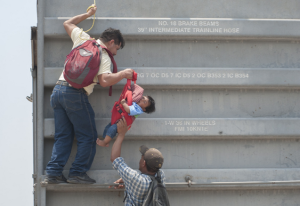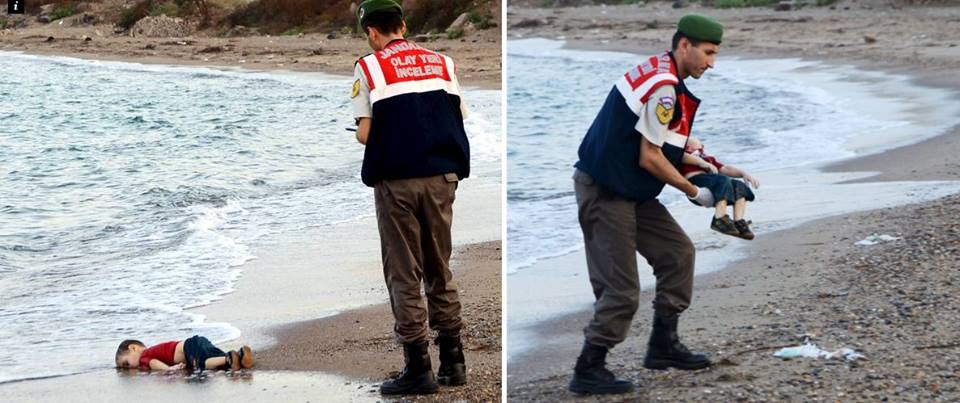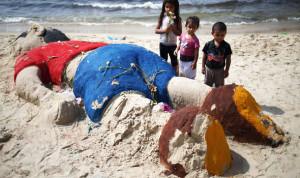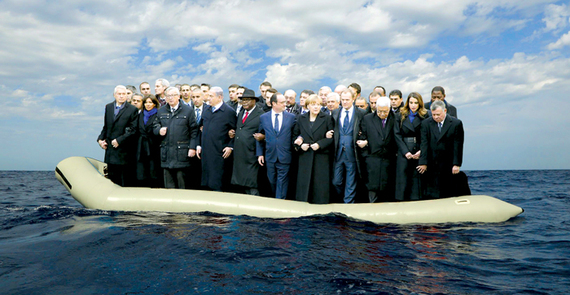Refugee Crisis: How the West has failed in the Middle East
Two weeks ago, over 50 migrants were found dead in a truck in Austria. Last week, young Aylan Kurdi washed up on the shore in Turkey. Images of the refugee plight as they emigrate to Europe from north Africa and Syria has dominated headlines in recent weeks. If you haven’t seen these images or heard these plights, you might be living off the grid somewhere. Or maybe just still agitated by our own migrant crisis from Central America last year.

Just as Latin American refugees were quickly labeled ‘economic migrants’–when facts showed that drug and cartel violence were the main reasons behind their brave journey–the same has been said about the majority of migrants crossing the sea to Europe. (For the sake of this article, I will use the term “refugee”, because the majority of these people are fleeing persecution; their movement is based on human rights and not economic reasons.) To set the record straight: the refugees are leaving due to political violence in their countries of origin. Syria has turned into a failed state largely controlled by both ISIS and Assad forces, Eritrea is controlled by a brutal dictator named Isaias Afwerki, and Afghanistan is still battling the Taliban and other internal factions.
France and Germany have been the leader in this crisis, shouldering the majority of the refugees. The response from most other European countries is sickening. Hungary’s prime minister, the Donald Trump of Europe as labeled by the Washington Post, stated that the refugees were a threat to Europe’s Christian roots. Perhaps he is unfamiliar with Christian teachings–compassion, empathy and brotherly love–which would have encouraged welcoming these refugees with open arms, ‘the Christian thing to do’.

Some would assume that Britain, one of the countries that launched an airstrike into Syria last year, arguably contributing to the current crisis, would have taken a leading role in accepting refugees. Instead, the government has been mostly silent and hesitant. Conservative Prime Minister David Cameron stated that taking more refugees was not the solution (but launching another airstrike in Syria is a solution).

Sweden, Norway and other Nordic countries, except for Denmark, has called upon the rest of the EU to be open to the refugees. Denmark began a campaign aimed at dissuading refugees from seeking asylum in their country, and even went so far as to pass legislation that tightens its immigration policies. Countries where anti-immigration sentiment is high include Slovakia, Estonia, Greece, Italy, Czech Republic and Bulgaria. All countries are casting blame on one another, on who should be responsible; Hungary is blaming Germany for sending a signal of acceptance, and the far Right in Sweden are blaming their generous welfare system for attracting migrants without looking at the root causes of their plight.

Here is the truth to the crisis: the involvement of the Western World in the Middle East has been a failed policy for more than two decades and should be solely blamed for exacerbating the crisis beyond. In Libya, we helped topple a dictator and then left the country a failed state. In Syria, the West began by supporting rebels fighting against Assad forces. The division between the rebels and Assad created a vacuum, allowing for extremists to foster their ideologies by seizing control of a huge swat of territories where Assad forces or the rebels lacked authority. As a result, ethnic Syrians, including Coptic Christians, faced immense persecution. Coptic Christian Syrian refugees join thousands of other Muslim minorities, who have no ability to defend themselves, in fleeing the conflict between Assad, Syrian rebels and ISIS. In Iraq, the illegal occupation in 2003 by the Bush/Cheney administration proved disastrous to the region. Without a stable government to back the ousting of Saddam, sectarian division between Sunnis and Shiites crippled Iraq’s ability to create a unified government. This again has allowed ISIS to foster their extreme ideology by gaining control in parts of Iraq where the rule of law has no representation.

We cannot continue to promote a military first policy in the Middle East and then look the other way when it goes bad, as it has for the past decade. We fail to understand that our actions fuel an atmosphere of resentment within the Middle East and outside; the result being groups like ISIS and other dictators that continue to wield a stronghold, fearing that what happened to Saddam, Gaddafi and Hosni Mubarak could happen to them. Additionally, dictators like Assad and the rest should be held accountable both judicially and financially on the cost for relocating refugees. Their assets frozen abroad should be used to help countries in accepting these refugees.
